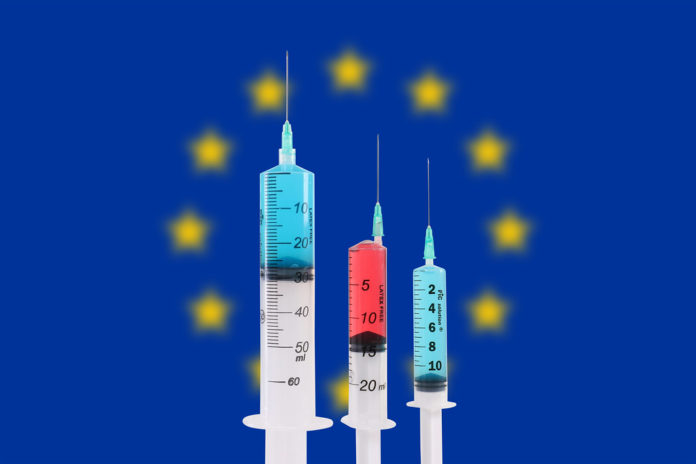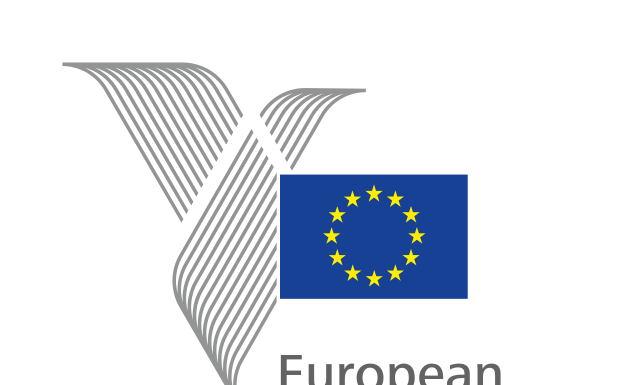- The EU failed to secure vaccines as quickly as the U.K., the U.S. and Israel
Whatever the reason, not as many Covid vaccines were delivered to the EU in the last few months as compared to the deliveries to Israel, the United States and the United Kingdom. Even proponents of greater EU centralization, like Renew MEP Guy Verhofstadt, have criticized the EU for this, saying that the reason for the EU’s lackluster performance is because of “the contracts Europe negotiated with the pharmaceutical companies”, which he thinks are “extremely unbalanced. They are precise on pricing and liabilities but weak and vague on supply and on timing, and offer escape routes to the contractual obligations of the pharmaceutical companies involved.”
The EU Commission has come up with all kinds of excuses for this, even accusing one of the vaccine producers, AstraZeneca, of having violated its contractual obligations with the EU, but when the contracts were made public, it was not clear at all that this was the case. What we know, is that the EU closed the deal with AstraZeneca three months later than the U.K. and that it was four months slower than the U.K. and the U.S. in signing the contract with Pfizer. Also, there would be provisions in the U.S. contract with J&J that the U.S. would enjoy priority for its J&J vaccine. Furthermore, Israel would have paid 2.3 times the EU’s price, thereby obtaining 40 percent more vaccine doses than Germany, even if the country’s population size is 12 percent of Germany’s.
In a nutshell: after Angela Merkel forced her Minister of Health to hand the initiative to negotiate contracts for vaccine procurement to the European Commission in June 2020, the Commission failed to do the job well. This doesn’t stop the supranational bureaucracy from calling for even more powers over health policy. One lesson that can already be drawn, is that this is not a good idea.
Some EU countries have already broken ranks with the EU. Austria and Denmark closed a deal with Israel on vaccine production, to “no longer be dependent only on the EU”, while also Poland, Hungary, Slovakia, and the Czech Republic have opted to go alone in various ways, exploring deals with Russia and China.
Perhaps EU governments jointly negotiating with big pharma made sense, but then some kind of technical team directly steered by 27 national governments, rather than a politicized supranational bureaucracy should have been made responsible.
- When a mistake was made, the EU refused to admit this
For those in doubt that the EU Commission is a deeply politicized institution, it suffices to take a look at how the Commission reacted when the poor results of its actions become apparent. It’s one thing to make a mistake. It’s yet another not to admit it.
In between accusing one of the vaccine producers that had just managed to come up with an incredibly successful vaccine at record speed of “breach of contract”, EU Commission President Ursula von der Leyen attempted to blame her Trade Commissioner, Valdis Dombrovskis. After dragging her feet, in the end she did issue a half-hearted admission that “mistakes were made” but that “in the end, we got it right.” Also her deputy, EU Commission vice-President Frans Timmermans, has now admitted “errors”, however without much explanation how and not without a sneer towards member states.
- In a bid to divert attention from its failures, the EU played up vaccine skepticism
In a weird turn of events, EU leaders – or at least some of them – appeared to start badmouthing the vaccine they first were clamoring for. Again EU Commission chief von der Leyen suggested that the U.K. had compromised vaccination “safety and efficacy”, unlike of course the EU. A similar tactic had been used by Belgian Prime Minister Alexander De Croo, when he stated in December that the UK was merely faster in approving the Pfizer vaccine because “they have used their population as [guinea pigs] over there.” Perhaps French President Macron went the farthest of them all, when he stated that the AstraZeneca vaccine was “‘quasi-ineffective” for older people. This flatly contradicted the science, according to which there simply wasn’t sufficient data to conclude it would also protect the elderly. It also contradicted the advice of the European Medicines Agency (EMA), which claimed that despite the lack of data, “protection is expected” also for those over 55 years old – something that has been confirmed by now.
A child could predict such statements by the EU Commission President and EU leaders, clearly made in a bid to divert attention from the EU’s own failures, wouldn’t exactly strengthen support for vaccines among the many “vaccine skeptics” in the EU. In practice, these look to have played a role in the low take-up of the vaccine, even if this would also be due to logistical failures of national governments. It also complicates the work to convince people vaccines are safe when actual legitimate worries arise, for example in recent days, when a number of EU member states suspended use of the AstraZeneca vaccine, despite reassurances by the European Medicines Agency (EMA).
- The EU decided to set up a vaccine export restriction scheme, risking retaliation
Another questionable response was to set up a so-called “export certification” mechanism, which allows curbs on exports of vaccines if drug makers fail to meet delivery targets. This was used for the first time by the government of new Italian PM Mario Draghi, when a batch of 250.000 AstraZeneca vaccines destined for Australia were denied an export permit from Italy.
The move was cleared by the European Commission, but may end up hurting the EU. Non-EU countries may retaliate, with or within the context of the WTO. This is also a headache for the EU vaccine industry, which is strongly reliant on imports from North America. Most companies at the forefront of vaccine effort have production capacity in EU to serve the world. Vaccine producers have testified their production capacity was already being slowed down due to these new bureaucratic hurdles.
On the longer term, this kind of politically inspired populist protectionism may also make the EU a less attractive place for investment into this innovative industry for which EU member states are so renown. Long gone are the days – a mere few months ago – when Ursula von der Leyen was pontificating not to engage in costly “vaccine nationalism”. One estimate puts the cost of such “vaccine nationalism” at $9 trillion, because of hampered international cooperation and reduced trade.
- The EU fought the one thing that has proven to work to avoid lockdowns: travel restrictions
The one thing that seems to have enabled countries to avoid economically devastating lockdowns were travel restrictions. Among Western nations, Finland and Norway, not Sweden, should really be the poster childs of the global “anti- lockdown” movements. They were both even more liberal than Sweden throughout 2020, and nevertheless managed to suppress the spread of Covid successfully, unlike Sweden. Their travel restrictions were key to help avoid the need for lockdowns after Spring, when everybody had been surprised by the virus. The travel checks they imposed weren’t all that burdensome and closely linked to virus infection risk data.
Perhaps it would be harder for countries in the middle of Europe to enforce such restrictions than for those in the periphery, but then well-traveled countries also have more scope to reduce infection risk by limiting non-essential travel. Belgium did so, in any case. Despite all the evidence that it works, in the middle of February, the EU Commission expressed concerns about such bans on non-essential travel. That’s not to say it shouldn’t be the job of the Commission to push for a relaxation when infection rates allow, and of course, it’s good to be mindful about such restrictions, but when the alternative is to inflict much more harm to the domestic economy, it’s obvious what the priority should be.













